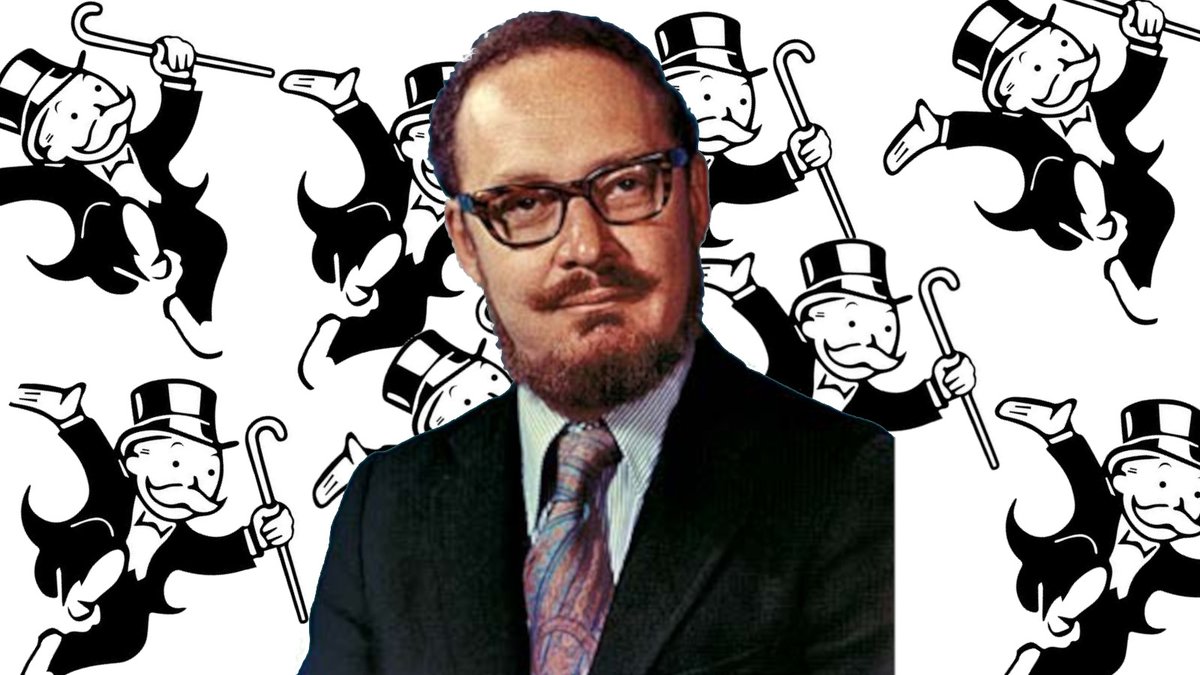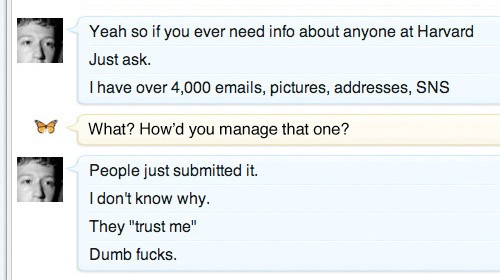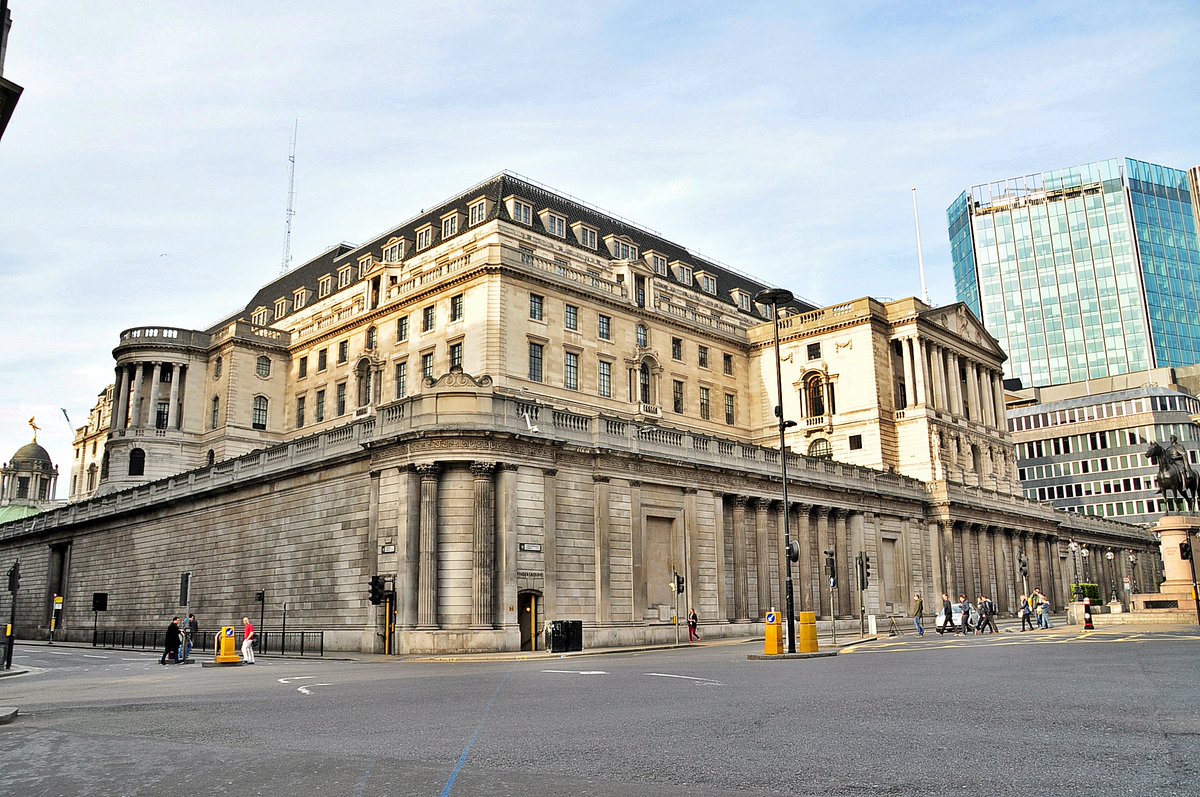
Unless you're a certain kind of conservative, you probably haven't heard of Robert Bork, but he's one of the most important people you've never heard of. The best way to understand Bork is that he was Ronald Reagan's court sorcerer.
1/
1/

Reagan was an empty vessel with the hands of ruthless plutocrats shoved up his asshole*, operating him like a hand puppet for their collective will to power.
He served as a kind of dowsing rod for policies that would transfer wealth from the 99% to the 1%.
*Hence the polyps
2/
He served as a kind of dowsing rod for policies that would transfer wealth from the 99% to the 1%.
*Hence the polyps
2/
That dowsing rod pointed straight at Bork. Bork was an alternate history writer, a fabulist with a unique and wildly improbable theory of antitrust statutes: that if you studied the Sherman Act and the Clayton Act with Qanon-style fervor, you'd find hidden messages in them.
3/
3/
Specifically, you would discover that the lawmakers who drafted, debated, amended and passed these laws thought monopolies were good, actually. They were only concerned with a small and possibly mythical minority of monopolies that were "harmful."
4/
4/
Not just any harms: Bork said that these ancient sages were worried about CONSUMER harms, which, practically speaking, means monopolies that use their power to raise prices. This, he said, was the only thing that the government should step in to prevent.
5/
5/
Since it is nearly impossible to prove that a given merger or tactic would result in higher prices before the fact, and ALSO it's nearly impossible to prove that a price rise after the fact was attributable to monopolism we should probably just forget about antitrust.
6/
6/
Reagan loved this. By shifting antitrust's focus from DEMOCRATIC harms (like reducing choice, distorting regulation, hurting workers, etc) to CONSUMER harms, he could demote "citizens" (who have a role in shaping policies) to "consumers" - mere ambulatory wallets.
7/
7/
Reagan tried to get Bork a seat on the Supreme Court, but there was a little problem. Bork had committed a string of disgusting crimes while serving as Nixon's Solicitor General, and the Senate refused to confirm him for a seat.
8/
8/
(Conservatives were outraged that committing crimes at the highest level of government disqualified you from the Supreme Court and coined the term "Borked" to describe rich, powerful people who had to face the unfair prospect of being held accountable for their actions)
9/
9/
But Bork - along with the Chicago School economists - went on to completely revolutionize the world's conception of anti-monopoly enforcement, as neoliberal leaders all over the world (Thatcher, Mulroney, Pinochet, Kohl, etc) took up his theories and tuned them into policy.
10/
10/
Bork was a fringe figure, but he was preaching a gospel that stood to make the richest people on Earth SO MUCH RICHER, and they bankrolled the hell out of his theories.
11/
11/
For example, 40% of US federal judges have attended "continuing education" seminars at an annual lush Florida junket where they are initiated into the bizarre world of "consumer harm" theory.
crookedtimber.org/2018/10/18/law…
12/
crookedtimber.org/2018/10/18/law…
12/
40 years later, monopolism has surged in every industry, from bottlecaps to pharma, from poultry to pro wrestling, from eyeglasses to emergency rooms, from oil to car parts, from music to publishing to movies to online services to telecoms.
13/
13/
All driven by mergers, all resulting in higher prices (so much for "consumer harm") all wildly distorting of public policy (the decision to let Boeing self-certify the 737 Max is repeated in thousands of ways across hundreds of industries), all brutal news for workers.
14/
14/
It's a disaster, but it's one that we have been powerless to avert or address for so long as "consumer harm" ruled antitrust enforcement.
Finally, that's changing.
15/
Finally, that's changing.
15/
In 2019, @DinaSrinivasan published a landmark paper: "The Antitrust Case Against Facebook," which made INCREDIBLY clever arguments showing that FB's democratic harms were also consumer harms, meaning FB could be sued without first undoing Borkism.
papers.ssrn.com/sol3/papers.cf…
16/
papers.ssrn.com/sol3/papers.cf…
16/
But the magic of this work was in revealing the poverty of the consumer harm standard: she laid out the innumerable ways in which FB is bad for society and showed how a sliver of these harms were technically illegal, raising the question: why isn't ALL this stuff illegal?
17/
17/
Today, Facebook was hit with TWO antitrust suits, one from the FTC and the other from almost every US state (including California!).
The complaints say that FB's acquisitions of Instagram and Whatsapp were anticompetitive.
theverge.com/2020/12/9/2215…
18/
The complaints say that FB's acquisitions of Instagram and Whatsapp were anticompetitive.
theverge.com/2020/12/9/2215…
18/
Of course, they WERE anticompetitive. We know, because Zuck - who specializes in tripping over his own dick - sent out memos extolling the acquisitions' anticompetitive advantages, proving he hasn't learned a thing since he traded incriminating IMs about founding FB.
19/
19/

The complaints build on Srinivasan's work and they carry the same flavor: claiming "consumer harms" in the acquisitions, but winking and nodding toward a broader, more democracy-focused (and less consumer-focused) critique of monopoly.
20/
20/
It's a weird tightrope act: they want to win, so their argument is designed to balance on the single, fragile hair that borkism stretches across the chasm of monopoly enforcement, but they wanna make sure we see that big sturdy bridge of nonbork antitrust right there.
21/
21/
If there was any doubt, it was erased by the remedies demanded in the complaints. The prosecutors aren't asking for money damages - a fine is a price, after all - instead, they want FB to sell off the companies it bought for illegal purposes.
22/
22/
And they want FB to get regulatory approval for future acquisitions (though the states will let it buy companies for less than $10m without approval). These are not "consumer harm" remedies - they're "democracy" remedies, aimed at removing the company's source of power.
23/
23/
Facebook has stood up a website explaining why it's a cuddly mom-and-pop business that's being bullied by mean government meanies:
about.fb.com/building-to-co…
The argument's pretty similar to the one laid out in a leaked memo in October:
pluralistic.net/2020/10/05/flo…
24/
about.fb.com/building-to-co…
The argument's pretty similar to the one laid out in a leaked memo in October:
pluralistic.net/2020/10/05/flo…
24/
Basically: it would be really hard for us to unwind these illegal, anticompetitive mergers. Seriously, it would cost a bundle and take so much work!
This is an unserious argument, and it shows how badly FB has misgauged the mood.
25/
This is an unserious argument, and it shows how badly FB has misgauged the mood.
25/
All of FB's arguments are garbage, really. Take the line that ex-British-Deputy-PM-turned-FB-salesdroid Nick Clegg has been peddling: "STOP TRYING TO BREAK UP FACEBOOK OR THE CHINESE WILL WIN!"
cnet.com/news/facebooks…
26/
cnet.com/news/facebooks…
26/
The company's best arguments are about "market definition" - to claim that they don't have a monopoly because of all the competitors they face, provided you define FB's market broadly enough.
27/
27/
Like, "Here at Facebook, we are in the 'using computers' business. Now, just think of how much time you spend using a computer without interacting with FB! Your car has a computer and it's not on FB! How can you say we have a monopoly?!"
28/
28/
If you want to see someone making this argument as well as it can possibly be made and literally getting laughed at by a University of Chicago (!) audience, check out this debate from 2019:
29/
29/
Forcing FB to divest itself of Whatsapp and Instagram is a no-brainer. The company lied to secure those mergers, broke the promises it made to get permission to make them, and the penalty for that should be unwinding those mergers.
eff.org/deeplinks/2020…
30/
eff.org/deeplinks/2020…
30/
And if FB fights this for a decade the way IBM fought its antitrust action, fine - IBM outspent the entire DoJ antitrust division every year for 12 years (Bork called it "antitrust's Vietnam"), but even though Big Blue wasn't broken up, they had their spirit broken.
31/
31/
It was fear of another tangle with antitrust regulators that caused IBM to sit idly by while Phoenix cloned the PC ROMs and created the PC clone industry, which became the US computing industry.
eff.org/deeplinks/2019…
32/
eff.org/deeplinks/2019…
32/
And it was the same fear that caused IBM to hire an outside company to make the OS for its PCs, getting a couple of nerds named Paul Allen and Bill Gates to supply one for them.
33/
33/
IBM's 12 years of antitrust hell focused the attention of every tech giant of the age, letting them know what was on their horizon if they acted like IBM had. It created the US tech industry.
34/
34/
Today, VCs call the businesses that Big Tech dominates "the kill zones" because they know that monopolists have the market power to destroy any startup that tries to compete with them.
35/
35/
There is an entire - better, more pluralistic - tech industry that's been suppressed by Big Tech. If FB and Goog and Apple and the other tech giants spend the next decades throwing billions at the FTC and the states attorneys general, it will be money well-spent.
36/
36/
Because it will be money that these companies don't get to spend destroying the next wave of tech companies, co-ops, and platforms.
eof/
eof/
• • •
Missing some Tweet in this thread? You can try to
force a refresh








